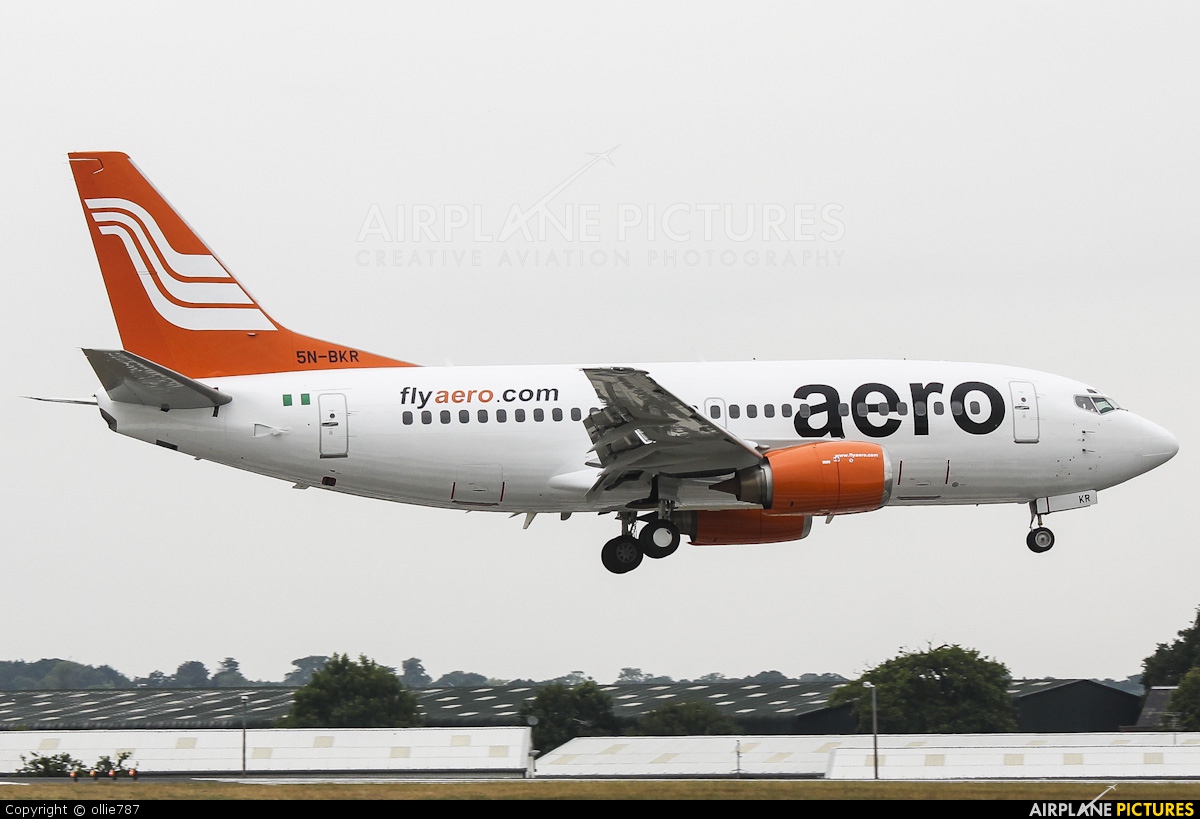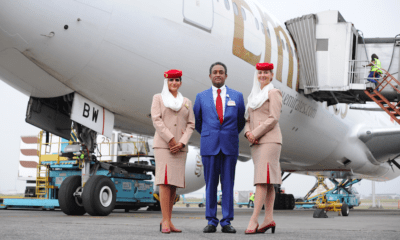- Aero Plans Fleet Expansion as it Marks 60 Years
The Chief Executive Officer, Aero Contractors, Capt. Ado Sanusi, has said the airline planned to increase the number of aircraft in its fleet before the end of year, having returned to full operations.
Sanusi, who spoke at a ceremony to mark the airline’s 60th anniversary in Lagos on Tuesday, said Aero had risen from its hard times and was currently being re-invented through its aircraft management organisation, approved training organisation and charter services.
He said, “The airline service has since December, 2016 returned to full operations and grown its fixed wing operational aircraft from one to four. It is our expectation to grow our fixed wing aircraft to six by the close of this year.
“The present count of four aircraft improved our domestic flight operations to 32 daily. From one helicopter in 2017 we now have five operational helicopters with capacity to further grow this number to 10 helicopters by close of the year so as to deepen our services.
“In all, we began our repositioning journey growing our domestic operations from eight to 32 daily flights and from ferrying 8,000 passengers per month, to 52, 000 passengers per month into and out of the several airports in our route.”
Representing the Ibru family, a former Managing Director of the defunct Oceanic Bank Plc, Mrs Cecilia Ibru, said people’s confidence in the airline had been restored in the last few years.
Acknowledging the role played by Sanusi after the takeover of the airline by the Asset Management Corporation of Nigeria, Ibru said Aero remained the backbone of aviation in Nigeria, in terms of services and personnel, among others.
“The passenger service, the C-checks and other things are testimonies that Aero is on an upward trajectory,” she added.
A former Director- General of the Nigerian Civil Aviation Authority, Dr Harold Demuren, said the management of AMCON should be commended for resuscitating Aero.
“Without AMCON, Aero will not be here today as an airline that has contributed a lot to the growth of aviation and the oil and gas sectors. Only Nigeria Airways surpasses Aero’s human capital development in the industry,” he said.
Sanusi said Aero’s Aircraft Maintenance Organisation which was approved by the NCAA to carry out C-checks on Boeing 737 Classics helped to revive the airline, adding that it had successfully conducted C-checks on 737 CL Boeing aircraft and had secured approval from the governments of Ghana and the Democratic Republic of Congo to carry out C-checks on B737 aircraft registered in their countries.
He stated that Aero Contractors was first formed in 1959 in the Netherlands before being officially registered in Nigeria in 1960, wholly owned by Schreiner Airways B.V. of the Netherlands.
According to him, the airline later became a partly Nigerian owned company with an initial 40 per cent Nigerian shareholding in 1973, which grew to 60 per cent by 1976 in fulfilment of the requirements of compliance with the Nigerian Enterprises Promotion Decree of 1977, also known as the indigenisation decree.
“By January 2004, Schreiner Airways was bought over by CHC Helicopter which acquired a 40 per cent holding in Aero while the 60 per cent majority share remained within the Ibru family. By July 2010, CHC sold its interests in Aero and the airline became wholly owned by the lbru family,” he added.


 Naira4 weeks ago
Naira4 weeks ago
 Naira4 weeks ago
Naira4 weeks ago


 Naira4 weeks ago
Naira4 weeks ago




 Naira3 weeks ago
Naira3 weeks ago
 Commodities4 weeks ago
Commodities4 weeks ago


 News4 weeks ago
News4 weeks ago


 Banking Sector4 weeks ago
Banking Sector4 weeks ago
 Travel4 weeks ago
Travel4 weeks ago



















